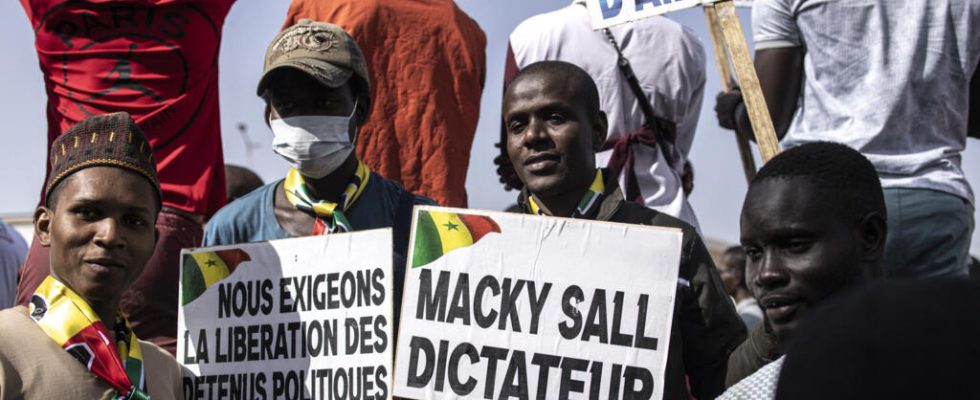In Senegal, the proposed amnesty law passed the Law Commission stage on Tuesday March 5. Its examination by this restricted group of 30 parliamentarians is the last step before its arrival on Wednesday March 6 in plenary and its analysis by all the deputies of the Assembly. This project initiated by President Macky Sall, supposed to pacify the political game after the postponement of the presidential election, is already controversial. However, it could benefit in particular Bassirou Diomaye Faye, of the former Pastef party.
3 mins
During its study by the Law Committee on Tuesday March 5, the amnesty bill was approved by sixteen votes for, three against and seven abstentions.
According to the first article of this bill, could benefit from an amnesty all those accused of crimes in connection with the protests that took place between February 2021 and February 2024, as well as those arrested for political motivations.
If no name has been given, Bassirou Diomaye Faye, the presidential candidate of the dissolved opposition party Pastef (the African Patriots of Senegal for work, ethics and fraternity) could fall within this framework: his release could become possible. Arrested in April 2023 for contempt of court, he has since been in pre-trial detention, notably for of the “ acts likely to compromise public peace “.
The period, as well as the charges against him, correspond to those covered by this bill.
The question is more complex for Ousmane Sonko. The fiercest opponent of Macky Sall was made ineligible and excluded from the presidential race after his six-month suspended prison sentence for defamation against the Minister of Tourism. In light of this amnesty law, this conviction could be described as political.
Especially since the bill specifies, in its introduction, that the text “ will allow people deprived of their civil and political rights to be restored »: these few lines could therefore open the debate on the release, or even the candidacy of Ousmane Sonko for the presidential election, in the event that the list of candidates is reopened.
However, there remains another conviction which weighs like a sword of Damocles on the political future of Ousmane Sonko, and which is not covered by the bill: he was sentenced to two years in prison for “ youth corruption », after his accusation of repeated rapes by an employee of a massage parlor in Dakar.
Many unknowns but a controversy even among the presidential majority
The bill still has many unknown aspects and it’s already controversial, including within the presidential majority. At least 60 people were killed, hundreds of Senegalese arrested, some of whom were victims of ill-treatment during the period.
For human rights organizations, a general amnesty will deprive these families of justice: it would then be impossible to prosecute the police responsible for police repression or ill-treatment. This amnesty therefore risks promoting impunity.
Same fear among certain members of the majority who would like to see all those who ransacked public places judged and not amnestied. Or the members of the opposition who encouraged this violence, for example.
Given the stakes, the discussions therefore promise to be long and hectic until Wednesday in the National Assembly.
